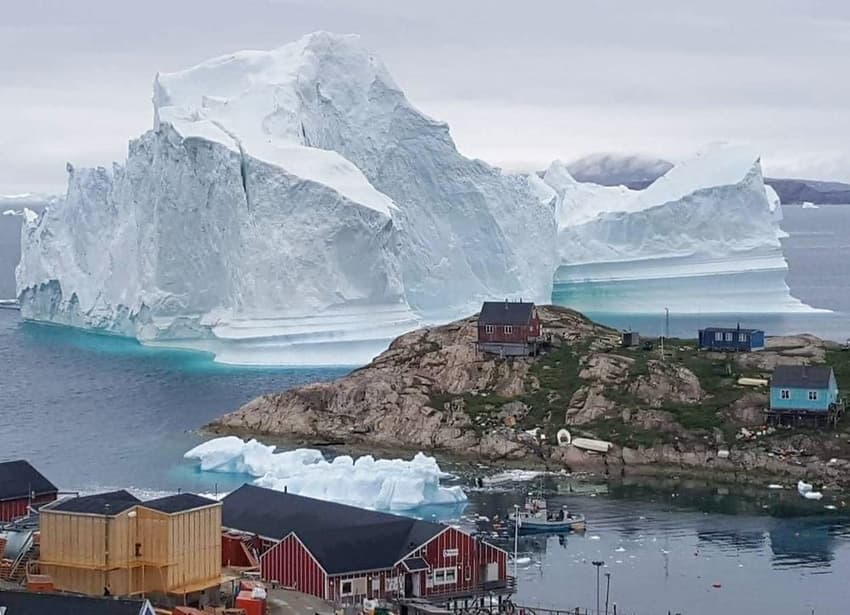Huge iceberg near Greenland village sparks flooding fears

A massive iceberg drifting near the coast of Greenland has triggered fears of flooding if it breaks up, leading the authorities to evacuate a high-risk zone.
The authorities have urged residents of the Innarsuit island settlement with houses on a promontory to move away from the shore over fears that the iceberg, which was spotted on Thursday, could swamp the area.
"We fear the iceberg could calve and send a flood towards the village," Lina Davidsen, a security chief at the Greenland police, told Ritzau on Friday.
The settlement in northwestern Greenland has 169 inhabitants, but only those living closest to the iceberg have been evacuated, Ritzau reported.
"The iceberg is still near the village and the police are now discussing what do to next," Kunuk Frediksen, a police chief in the Danish autonomous territory, told AFP.
The incident comes weeks after scientists at New York University shot and released a video of a massive iceberg breaking free from a glacier in eastern Greenland in June.
Last year, four people died and 11 were injured after an earthquake sparked a tsunami off another island settlement called Nuugaatsiaq, sending several houses crashing into the sea.
READ ALSO: Police call off search for Greenland tsunami missing
Comments
See Also
The authorities have urged residents of the Innarsuit island settlement with houses on a promontory to move away from the shore over fears that the iceberg, which was spotted on Thursday, could swamp the area.
"We fear the iceberg could calve and send a flood towards the village," Lina Davidsen, a security chief at the Greenland police, told Ritzau on Friday.
The settlement in northwestern Greenland has 169 inhabitants, but only those living closest to the iceberg have been evacuated, Ritzau reported.
"The iceberg is still near the village and the police are now discussing what do to next," Kunuk Frediksen, a police chief in the Danish autonomous territory, told AFP.
The incident comes weeks after scientists at New York University shot and released a video of a massive iceberg breaking free from a glacier in eastern Greenland in June.
Last year, four people died and 11 were injured after an earthquake sparked a tsunami off another island settlement called Nuugaatsiaq, sending several houses crashing into the sea.
READ ALSO: Police call off search for Greenland tsunami missing
Join the conversation in our comments section below. Share your own views and experience and if you have a question or suggestion for our journalists then email us at [email protected].
Please keep comments civil, constructive and on topic – and make sure to read our terms of use before getting involved.
Please log in here to leave a comment.